Partners
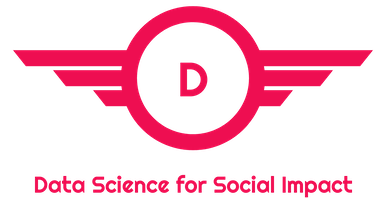
covid19za Consortium
The open Coronavirus COVID-19 (2019-nCoV) Data Repository for South Africa created, maintained and hosted by Data Science for Social Impact research group at the University of Pretoria. To disseminate this information, the Data Science for Social Impact research group at the University of Pretoria, South Africa, has worked on curating and applying publicly available data in a way that is computer readable so that information can be shared to the public ��� using both a data repository and a dashboard.
Partner project leader(s): Tshepiso Mokoena and Raesetje Sefala
Project(s) presentations:
- Title: COVID-19 MODEL HUB , Students: Takura Asael Wekwete | Lekutumisa Eddie Mathebana, Year: 2022
- Title: Application of a Stateful LSTM in the Forecasting of Covid-19 Cases in South Africa , Students: Graeme Lubbe | Tinashe Chinyati, Year: 2022
- Title: Forecasting Covid-19 cases using machine learning models in South Africa , Students: Sakhiwo Mtwenka | Siyabonga Mbomambi, Year: 2021
- Title: COVID-19 South Africa (COVID19ZA) Consortium , Students: Yolanda Nkalashe | Andani Madodonga, Year: 2021
- Title: Using machine learning and Natural processing methods to extract text features for categorisation classification and detection , Students: Raymond Chiruka | Mohlatlego Nakeng, Year: 2021

Forestry And Agricultural Biotechnology Institute and Institute of Commercial Forestry Research
FABI, the Forestry and Agricultural Biotechnology Institute, at the University of Pretoria, is a post-graduate research institute that was established in 1997, based on a recognition that the future of forestry and agriculture in South Africa will strongly depend on the incorporation of new and emerging technologies into these industries. Major opportunities for these industries have emerged in recent times, from the applications of biotechnology and bioinformatics, amongst many others. FABI scientists undertake goal-directed research, in partnership with major players in the forestry and agricultural sectors in South Africa and in so doing, promote both human capital and industrial development in the country.
The Institute for Commercial Forestry Research (ICFR) is a non-profit organisation, providing project-based research solutions and related services in support of forest management in southern Africa. ICFR is the custodian of weather data on behalf of the forestry industry.
The Institute for Commercial Forestry Research (ICFR) is a non-profit organisation, providing project-based research solutions and related services in support of forest management in southern Africa. ICFR is the custodian of weather data on behalf of the forestry industry.
Partner project leader(s): Hannes Strydom and Dr Ilaria Germishuizen and Prof Bernard Slippers
Project(s) presentations:
- Title: Enabling weather-based decision making for forestry pest and disease management , Students: Connor McDonald | Gen�� Fourie, Year: 2022
- Title: Enabling weather-based decision making for forestry pest and disease management , Students: Ndamulelo Nemakhavhani | Rogerio dos Santos, Year: 2022
- Title: Enabling weather based decision making for forestry research and management , Students: Ndhivuwo Mphephu | Romeo Taljaard, Year: 2021
- Title: FABI Plant Diseases Clinic Model for Advanced Diagnostic Services , Students: Sabelo Madondo | Freddie Tafara Hove, Year: 2020
- Title: A Neural Network model for Predicting snout beetle infestations , Students: Jarrod Moses | Hlompho Lekaka, Year: 2020
- Title: Beating the Beetle , Students: Isak Potgieter | Andreas Bayer, Year: 2020
- Title: FABI Integrated Plant Disease Diagnostic Clinic databases for advanced diagnostic services , Students: Yolande Ngadoum Kengne Magoua | Corne Bodenstein, Year: 2020
- Title: FABI Plant Disease Advanced Diagnostics Clinic , Students: Riaan Smit | Abhay Lal, Year: 2020
- Title: Beating The Beetle , Students: Paddington Chiguvare | Masana Khosa, Year: 2020
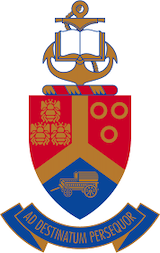
Department of Consumer and Food Sciences, University of Pretoria
The department provides relevant, world-class education and training of future leaders in Consumer Science, Food Science, Culinary Science and Nutrition. We provide teaching and learning opportunities to develop future leaders in Food Science, Nutrition, Hospitality, Food Retail Management and Clothing Retail Management. We also conduct relevant research that is internationally recognized and impacts positively on the well-being of the African community.
Partner project leader(s): Prof Ri��tte de Kock
Project(s) presentations:
- Title: Plant-based meat alternatives: what is the word on the streets of South Africa? , Students: Rebaone Masuelele | Nelson Kgothatso Phora, Year: 2022
- Title: Plant-based meat alternatives ��� What is the word on the street of South Africa? , Students: Mzoxolo Mbini | Derwin Ngomane, Year: 2022

Department of Private Law, University of Pretoria
The Department of Private Law is responsible for teaching several of the core subjects in the LLB curriculum. The main subjects taught are Family Law and the Law of Persons in the first year, Law of Succession, Law of Contract and Legal Pluralism in the second year, Law of Things, Intellectual Property Law and Law of Delict in the third year and Private Law in the fourth year. The Department also takes responsibility for teaching the following electives in the fourth year, namely Private International Law, Law of Damages, Trusts and Estates, Education Law and Child Law.
Partner project leader(s): Prof Gustav Muller
Project(s) presentations:
- Title: Impact of Law Research in South African Courts , Students: Vimal Ranchhod | Christiaan Klopper, Year: 2022
- Title: Measuring Impact of Law Research In South African Courts , Students: Moyahabo Rabothata | Arno du Preez, Year: 2022
- Title: Measuring the Impact of Law Research in SA Courts , Students: Danie Ungerer | Hillion Mngomezulu, Year: 2021

Mail and Guardian
The Mail & Guardian is a quality investigative and comment news publication, based on a culture of editorial independence and excellence. We have published a weekly newspaper since our first edition in 1985, and in 1994 we became the first news organisation in South Africa to launch a website. Since that first issue, the M&G has maintained an activist soul. We were born out of the need for a truly free and independent press in the dark days of the Apartheid regime, and through our journalism, we maintain and promote our core values of truth, freedom, justice and equality. Our aim is to create space for debate and diversity, to defend freedom of expression and to combat racial, political and religious prejudice. We stand in solidarity with the powerless and vulnerable and we strive for a more just and compassionate South Africa
Partner project leader(s): Athandiwe Saba
Project(s) presentations:
- Title: Zondo Commission on State Capture: what we missed? , Students: Mashadi Ledwaba | Katlego Mongoai, Year: 2022
- Title: Zondo Commission on State Capture: What We Missed , Students: Erika Scholtz | Matimba Shingange, Year: 2022
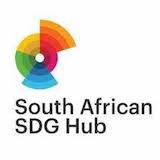
South African Sustainable Development Goals (SDG) Hub
The South African SDG Hub is a metaplatform that aggregates the best and most relevant research on the Sustainable Development Goals (SDGs) from South African and selected non-South African universities. Our machine-learning-based classification tool classifies research in terms of one or more of the SDGs. Our mission is to increase the impact of research published on universities' institutional repositories.
Partner project leader(s): Dr Jurgens de Lange and Prof Willem Fourie
Project(s) presentations:
- Title: Visualising University Research and SDG Contribution in South Africa , Students: Hlonela Mntonintshi | Lister Kom, Year: 2023
- Title: Visualizing University Research and SDG Contributions in South Africa , Students: Phoebe Mailwane | Desire Sundire, Year: 2023
- Title: Improving Access to SDG Information via the�� South African SDG Hub , Students: Thato Rachamose | Teboho Maloka | Ntsika Faku, Year: 2022
- Title: Improving Search Accessibility at the South African SDG Hub using Semantic Matching and Topic Modelling. , Students: Jesse Parvess | Shaun Johnson, Year: 2022
- Title: Using AI to predict SDG goals and targets , Students: Retshidisitswe Lehata | Carel Nchachi, Year: 2020
- Title: South African SDG Search Engine , Students: Lehan L��tter | Linae Munsamy, Year: 2020
- Title: An SDG classification tool for South African research , Students: Khutso Sepuru | Lamont Theron, Year: 2020
- Title: Enhancement of Classification Models for Sustainable Development Goals and Constituent Targets , Students: Cindy Hayward | Frederik Pretorius, Year: 2020
- Title: Profiling volunteering transactions in South Africa , Students: Abri de Beer | Henk Kotze, Year: 2020
- Title: MIT808-OverIT-SASDG Hub Research Classification Tool , Students: Davod Khan | Laing Lourens, Year: 2020

Centre for Environmental Studies, GGM, University of Pretoria,
The Centre for Environmental Studies at the University of Pretoria is a graduate training programme for multidisciplinary studies in the field of environmental sciences. The emerging discipline of Environmental Studies requires a new generation of graduates capable of facing the challenges posed by this multidisciplinary subject as well as by the expanding and rapidly changing market requirements. The latest developments in national legislation with respect to the environment and the consumer-driven environmental awareness of the industry at an international level have generated a need for suitably qualified professionals who can implement these new developments in the environmental industry. A sensitive balance between professional specialisation and a broad understanding of the varied and interacting dimensions of environmental problems is required promoting sustainable economic development at the conservation natural resource and social dimensions.
Partner project leader(s): Dr. Philemon Tsele and Prof. Abel Ramoelo
Project(s) presentations:
- Title: Detection and counting of Baobab trees using remote sensing and ML in the far-northern part of Limpopo. , Students: Neacail Hilhorst | Joshua da Silva, Year: 2023
- Title: SPOT the Trees: Remote-sensing Based Techniques for Tree Species Classification in Northern Limpopo , Students: Trishanta Srikissoon | Godwin Sichulu, Year: 2023
- Title: Identifying and counting commercial solar installations in South Africa , Students: Ryan Shackleton | Matthew Lazenby, Year: 2022
- Title: Identifying and counting commercial solar installations in South Africa , Students: Tsepang Polaki | MH van Staden, Year: 2022

Faculty of Economic and Management Sciences
At the EMS Faculty you will receive the best support and additional study resources online to help you graduate on time with a relevant and internationally recognised degree that carries an excellent reputation amongst the top corporate employers in South Africa and abroad. You will also have the opportunity to gain critical skills that will allow you to start your own business as an entrepreneur. The Faculty offers a wide range of specialised degrees at undergraduate and postgraduate levels and focuses on three broad areas namely financial sciences economic sciences and management sciences ��� the cornerstones of global economies. We are a proud member of the Association to Advance Collegiate Schools of Business (AACSB). A number of our degrees are accredited by statutory and professional bodies at national and international level.
Partner project leader(s): Prof S Das and Dr A Bignotti
Project(s) presentations:
- Title: Profiling volunteering transactions in South Africa , Students: Moses Lusinga | Khanyisa Noganta, Year: 2020
- Title: Profiling Volunteering Transactions , Students: Palesa Lepamo | Semaka Malapane, Year: 2020
- Title: Profiling volunteering transactions in South Africa , Students: Mmantwampe Minah Manyama | Maria Twala, Year: 2020
- Title: Forgood Needs , Students: Nkosana Guga | Tebogo Motlhamme, Year: 2020
- Title: Profiling Volunteering Transactions in South Africa , Students: Lerato Khumisi | Liketso Nthimo, Year: 2020

Facial Morphology Research group
Our main research focus is to identify affordable, non-invasive measures of health. More specifically, we study the associations between facial appearance (both shape and colour), direct measures of health and genetic variation. Our previous work, for example, found associations between facial appearance and Body Mass Index (BMI), hormonal profile, and antibody response. Many of these studies were conducted in collaboration with other local and international researchers and we continue to collaborate with various researchers worldwide.
Partner project leader(s): Prof. Vinet Coetzeeand | ORCiD and Google Scholar
Project(s) presentations:
- Title: Predicting the Presence of Congenital Conditions from Facial Features , Students: Christopher Marais | Pieter van der Walt, Year: 2020
- Title: Predicting congenital conditions from facial features , Students: Michelle Terblanche | Riaal Domingues, Year: 2020

Department of Private Law, University of Pretoria
The Department of Private Law is responsible for teaching several of the core subjects in the LLB curriculum. The main subjects taught are Family Law and the Law of Persons in the first year, Law of Succession, Law of Contract and Legal Pluralism in the second year, Law of Things, Intellectual Property Law and Law of Delict in the third year and Private Law in the fourth year. The Department also takes responsibility for teaching the following electives in the fourth year, namely Private International Law, Law of Damages, Trusts and Estates, Education Law and Child Law.
Partner project leader(s): Prof Gustav Muller
Project(s) presentations:
- Title: An empirical analysis of appellate copyright jurisprudence in South Africa , Students: Mokhusu Mothapo | Matome Ledwaba, Year: 2023
- Title: An empirical analysis of appellate copyright jurisprudence in South Africa , Students: Kapei Sebesho | Xolile O���Reilly,, Year: 2023
- Title: Decoding Music Law with NLP , Students: Juliet Rushambwe | Nhlanhla Mackenzie, Year: 2025

Innovation Africa
Innovation Africa @UP is a research investment platform that hosts and develops government-industry-University research entities to address national and pan-African needs for sustainable development and economic growth. The Forestry and Agricultural Biotechnology Institute (FABI), Engineering 4.0 and Future Africa, together with various other research programmes and faculties at the University of Pretoria, provide a powerful foundation for the Innovation Africa @UP platform.
Partner project leader(s):
Project(s) presentations:
- Title: An Automated Metadata Mining and Dataset Recommendation��System , Students: Fiskani Banda | Kris Hamersma, Year: 2023
- Title: An Exploratory Data Analysis and Data Mining Approach to Dataset and Dataset Relationship Discovery in Production Systems , Students: Penelope Matloga | Nandi Mnguni | Phindile Binda, Year: 2023

Department of Zoology and Entomology, University of Pretoria
The Department of Zoology and Entomology provides excellence in teaching and sustained high productivity and quality in research. We are a highly skilled, internationally recognised scientific team, whose major research and teaching goals are to provide a comprehensive understanding of the patterns in, processes underlying, threats to, and management of biodiversity in natural and human-influenced landscapes.
Partner project leader(s):
Project(s) presentations:
- Title: Assessing the Feasibility of Identifying Wildlife from A Drone���s Perspective , Students: Rozina Myoya | Lesego Matojane, Year: 2023
- Title: Cautiously counting crocodiles , Students: Victor Dippenaar | Johann Pienaar, Year: 2023

Gys Pitzer Motoring
We are in the motor industry buying and selling good used vehicles.
Partner project leader(s): Prof Vukosi Marivate
Project(s) presentations:
- Title: Automated Vehicle Valuation Model using Linear Regression , Students: Matthew Grobler | Mabel Mapuwei, Year: 2023
- Title: Automated Vehicle Valuation System , Students: Tyler Ramnath | Matthew Dickson, Year: 2023
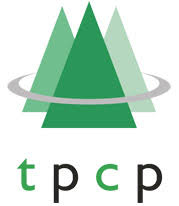
Tree Protection Co-operative Programme (TPCP), Forestry and Agricultural Biotechnology Institute (FABI), University of Pretoria
The Tree Protection Co-operative Programme (TPCP), hosted at the Forestry and Agricultural Biotechnology Institute (FABI), is highly recognised internationally as the single strongest programme dealing with pest and pathogen problems in plantation forestry in the world. The TPCP has also brought huge energy to agricultural research and education in the biological sciences in South Africa. For example, it formed the foundation for the establishment of FABI at the University of Pretoria, which has become a flagship research centre promoting many aspects of plant improvement in South Africa. The TPCP represents a co-operative research initiative between the University of Pretoria and all private forestry companies in South Africa. It is also supported by departments in the South African Government. Other than long and short-term research, the TPCP provides the industry with extension services, training of forestry students at Universities, access to a world-class disease and pest diagnostic clinic and guidance in dealing with tree pest and pathogen problems. One of the key products of the TPCP is to produce biological control agents for insect pests that damage plantations belonging to members. This work depends on outstanding quarantine green house and related facilities.
Partner project leader(s): Prof. Martin Coetzee and Mr. A.N. Schreuder
Project(s) presentations:
- Title: A Hierarchical Approach to Pest Detection Using Few Shot Learners and Small Datasets , Students: Marc Gagiano | Stephan Kersop, Year: 2023
- Title: Insect Pest Classification and Detection using Deep Learning techniques , Students: Panashe Mabwe | Pandelani Nekhumbe, Year: 2023
- Title: Detecting Fungal Diseases in Trees , Students: Nhlanhla Jamie Simelane | Lindokuhle Mtshali, Year: 2024

Data Science Law Lab
The Data Science Law Lab is a research group for the study of laws regulating data science activities and how African countries should apply those laws to harness the opportunities and address the challenges of those data science activities.
Partner project leader(s): Dr Chijioke Okorie and Mr Segopotso Gakeitumele
Project(s) presentations:
- Title: An empirical analysis of appellate copyright jurisprudence in South Africa , Students: Mokhusu Mothapo | Matome Ledwaba, Year: 2023
- Title: An empirical analysis of appellate copyright jurisprudence in South Africa , Students: Kapei Sebesho | Xolile O���Reilly,, Year: 2023
- Title: Decoding Music Law with NLP , Students: Juliet Rushambwe | Nhlanhla Mackenzie, Year: 2025

Conservation Ecology Research Unit
Research on African elephant conservation and management
Partner project leader(s): Dr. Robert Guldemond and Dr. Ryan Huang and Mr. Arne Schreuder and Mr. Heinrich van Deventer
Project(s) presentations:
- Title: Automating Rapid Elephant Population Assessment Using YOLOv8 , Students: Letlhogonolo Nape | Thandiwe Njephe, Year: 2024
- Title: Automated Rapid Elephant Population Assessment from Aerial Photos , Students: Lekubu Mangwale | Murendi Rampai, Year: 2024
- Title: ElephantMatcher: Wildlife Population Monitoring , Students: Thakhani Madzivhandila | Talifhani Nekhumbe, Year: 2025
- Title: Estimating an Elephant Population Structure Using Machine Learning , Students: Gift Silinda | Tshifhiwa Mashaba, Year: 2025
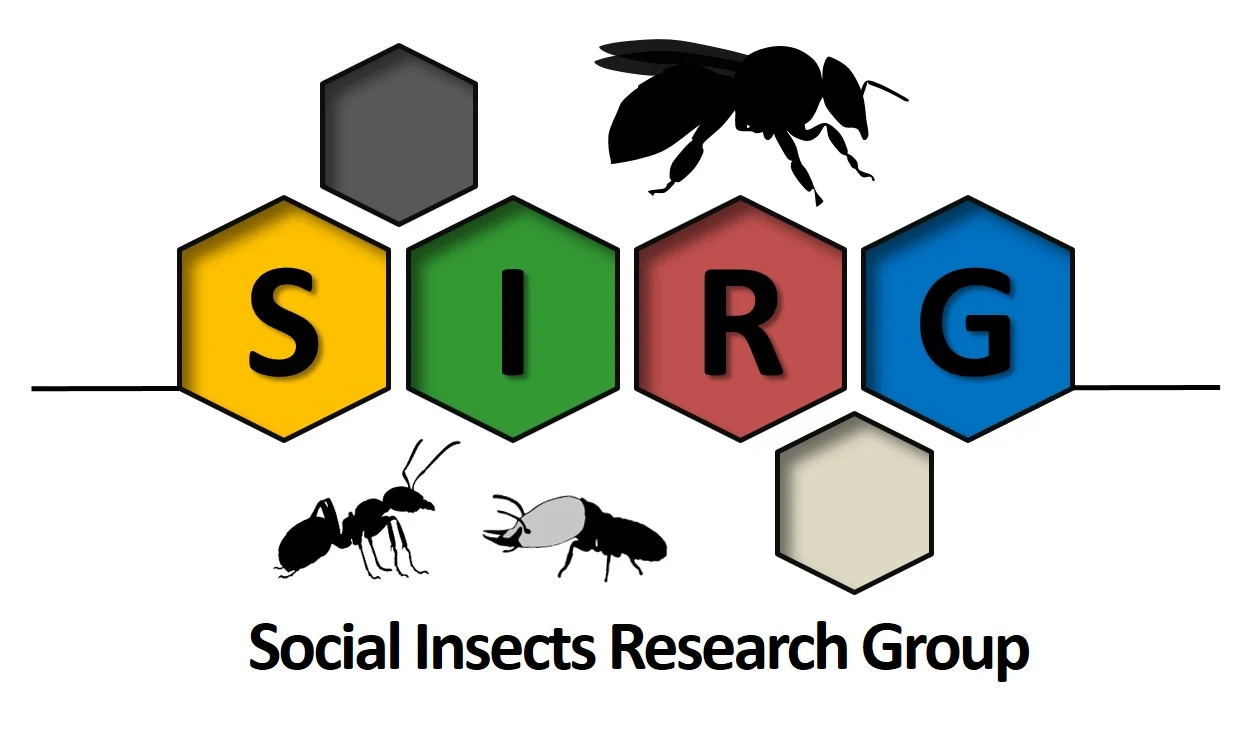
Social Insects Research Group and Department of Zoology and Entomology
The Social Insects Research Group (SIRG) also known as the Bee group is a Research Group in the Department of Zoology and Entomology, University of Pretoria. Our group studies fundamental and applied aspects of sociality in ants, bees, termites and wasps with a particular focus on honey bees, hence we are teaching and building capacity for bee research on the African continent and beyond. One of our main topic of research is the analysis of pheromonal communication between colony members, using behavioural observations, analysis of the relatedness of the individuals involved, bioassays of their responses to pheromonal compounds and gas chromatographic analysis of chemical signals produced. This work allows us to explore the regulation of reproductive conflicts in honey bee colonies. We also study other aspects of social organisation, such as the diet of workers that reproduce, division of labour, regulation of nest homeostasis etc.Our research on pesticides looks at the impacts they have on the survival and decline of bees as well as the environment. Here our focus is on effects such as mortality, learning and behavioural impairment (foraging, taste, memory, responses to pheromones), physiological (detoxification) and impacts of changing environment (temperature). With the threats to the survival of managed honey bee colonies, we are doing research into bee diseases and the potential threats they pose to honey bee health and sustainable apiculture. Our group is also part of global initiatives such as COLOSS (Prevention of honeybee Colony LOSSes) and SUPER-B networks that focus on research and improving the well-being of pollinators at the global level. In 2015, we were selected unto the Executive Council (EC) of the Africa Apiculture Platform (AAP) for honey production, bee health and pollination services of the African Union. From a more local perspective, we are investigating the population genetics of wild honey bees in South Africa with a view to making recommendations about the conservation of local populations. Honey bees are major pollinators of both native flora and agriculturally important crops. The bees have recently been threatened by several parasites that affect the colonies of commercial beekeepers, and whose effect on the wild population is poorly understood. We are monitoring the population densities of honey bee colonies in different habitats to establish a benchmark against which we will be able to assess the effect of parasites on wild populations in the future. The group is collaborating with other groups and institutes within Africa in countries like Kenya, Nigeria, Uganda, Cameroon, as well as in Thailand, China, USA, Switzerland, Netherlands, and Germany. Please contact us if you want to work on bees, ants or termites in South Africa.
Partner project leader(s): Prof Abdullahi Yusuf
Project(s) presentations:
- Title: Bees species identification , Students: Hanno Jacobs | Yasekwa Dutywa, Year: 2024
- Title: Optimising Termite Control Using Matabele Ant Raid Data & Machine Learning , Students: Mzwakhe Didshe | Realeboga Monare, Year: 2025
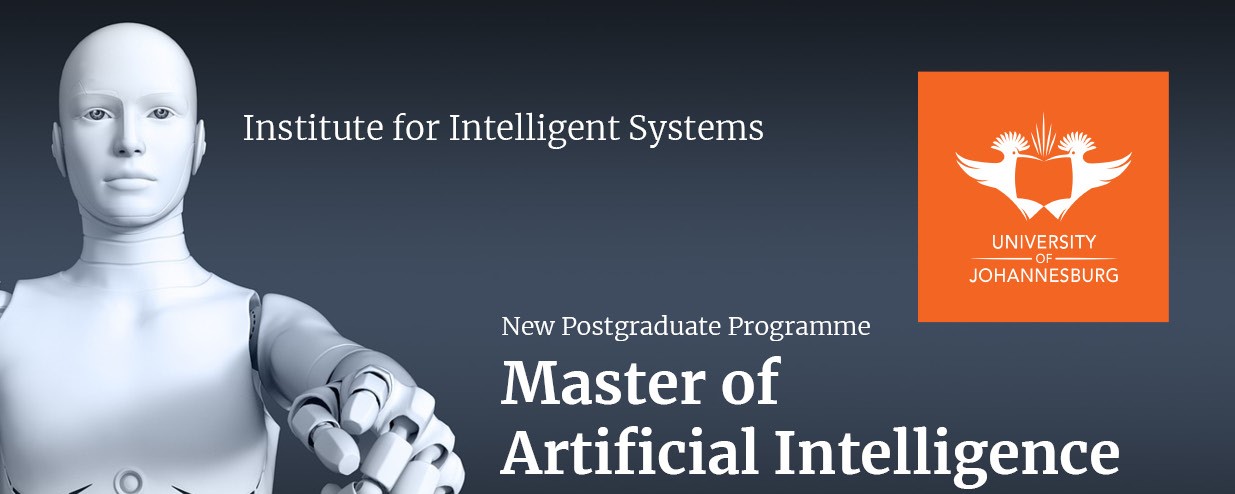
Institute for Intelligent Systems
One of the strategic thrusts of the University of Johannesburg (UJ) is to lead Africa into the Fourth Industrial Revolution. The Institute for Intelligent Systems (IIS) was established in 2016 within the University to act as a catalyst towards the UJ Strategy for Global Excellence and Stature (GES). IIS is one of UJ's flagship institutes for Global Excellence and Stature (GES 4.0).
Partner project leader(s): Prof. Mpho Primus and Dr. Osondu Oguike
Project(s) presentations:
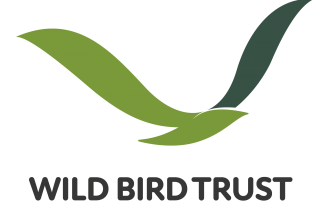
Wild Bird Trust
Develop conservation plans to support sustainable forest management, forest protection and habitat restoration within Cape Parrot distribution.
Partner project leader(s): Dr Jessica Leaver (WBT) and Dr Albert Myburgh (University of Pretoria)
Project(s) presentations:

UP Faculty of Engineering, Built Environment & IT (EBIT)
EBIT contributes to the training of professionals and the creation of knowledge in a wide range of industries through its 14 specialised academic departments. These departments are organised into four schools. EBIT is also the largest UP faculty in terms of student numbers.
Partner project leader(s): Prof Hanlie Smuts and Prof Marlene Holmner and Dr Linda Marshall and Dr Abiodun Modupe
Project(s) presentations:
- Title: Measuring the Societal Impact of UP Research , Students: Sachin Modi | Reshay Mahepal, Year: 2024

Quote this Woman
We are an intersectional feminist organisation that aims to transform gender representation in the media landscape by promoting women voices and narratives that reflect African demographics and perspectives.
Partner project leader(s): Kath Magrobi
Project(s) presentations:
- Title: Closing The Gender gap in who makes the News through Natural Language Processing (NLP). , Students: Thokozani Msezane | Bayanda Kutshwa, Year: 2024
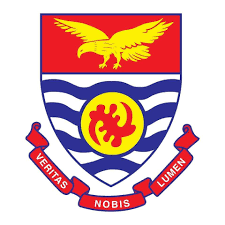
Department of Mathematics, University of Cape Coast, Ghana
Our department has been an integral part of the university since its establishment in 1962. The original mandate of the department was for the training of teachers for the secondary schools and teacher training colleges in the country. However, over the years this has changed as the department now trains students for all the sectors of the Ghanaian economy. Our graduates can also be found in other universities abroad pursuing further studies or working with both governmental and non-governmental institutions.
Partner project leader(s): Dr Stephen Moore
Project(s) presentations:
- Title: Cacao plant leaf disease detection and classification , Students: Emmanuel Tovurawa | Blessing Dlamini, Year: 2024
- Title: Maize Disease Detection using Deep Learning Models , Students: Wendy Mapamela | Boikanyo Radiokana, Year: 2024
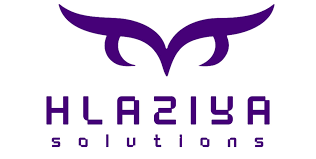
Hlaziya Solutions
We are a data-led research and consulting company specialising in financial and socio-economic analysis. We have extensive experience in analysing South African economic, social and political trends. Our team has been providing analysis of general elections since 2011 and we have completed a number of economic impact assessments at the national, provincial, and local level. Our clients include companies in the JSE Top 25, government departments, non-profit organisations, and other private and public sector partners.
Partner project leader(s): Paul Berkowitz
Project(s) presentations:
- Title: Using the machine learning algorithm, Random Forest Classifier to predict the South African electoral results. , Students: Lance FIck | Thabo Masilo, Year: 2024

Geography, Geoinformatics and Meteorology Department, UP
Our research focuses on geographic spaces, such as the physical aspects of the Earth below, on and above the ground; how human society is shaped by the world around us; the spatial patterns and processes that describe the behaviour of animals and humans; the inter-disciplinary study of our environment; and how geospatial information and technologies can be used to understand the above.
Partner project leader(s): Prof Liesl Dyson
Project(s) presentations:
- Title: Application of Deep Learning Techniques in Medium-Range Rainfall Forecasting , Students: Thokozile Khosa | Caleb Siyasiya, Year: 2025

Future Africa
Future Africa is the University of Pretoria’s collaborative platform for research that works across the sciences and with society to address Africa’s biggest and most urgent contemporary challenges. Our fundamental purpose is to develop and unleash the transformative potential of African sciences to inform and inspire a future of thriving African societies.
Partner project leader(s): Prof Wanda Markotter, Dr Tedson Nkoana, Kayleigh Marcus
Project(s) presentations:
- Title: Standardizing Zoonotic Disease & Beef Production Data for Smarter Decisions , Students: Robert van Aswegen | Akhona Stafane, Year: 2025
- Title: Exploring Zoonotic Disease Knowledge Through AI for Enhanced Risk, Prevention & Response , Students: Reolin Govender | Armand de Wet, Year: 2025
- Title: The Beef Value Chain Transformation - Data Platform for Zoonotic Diseases and Production , Students: Mihle Senene | Omphemetse Tlakula, Year: 2025
UFS ICDF and UJ Applied Information Systems
UFS - The ICDF – an institution-wide initiative – offers opportunities to co-create research projects in an inter- and transdisciplinary manner, with an explicit focus on the manifold aspects related to the digital. We embrace an approach that is cognisant of the developments of digital strides by seriously considering how technological advances intersect and evolve with, as well as influence and are entangled with the social, psychological, and environmental domains. We endeavour to make our projects relevant by incorporating complexity and strive to make our projects impactful for the changing needs of our specific context and its unique challenges, thereby strengthening ‘digital well-being’ through our research projects.
UJ Department of Applied Information Systems strives to be the preferred provider of comprehensive and innovative ICT education, training and research programmes to benefit industry and broader society.
Partner project leader(s): Dr Herkulaas Combrink (UFS) and Koena Mabokela (UJ)
Project(s) presentations:
- Title: Political Polarisation and Network Analysis in South African Election Discourse , Students: Michael du Plessis | Carl du Plessis, Year: 2025